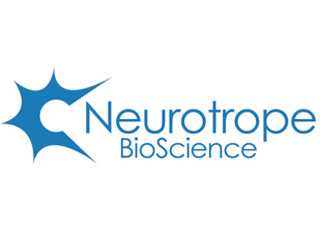 Neurotrope Inc. announced that it has signed an agreement with Stanford University to study and, along with Dr. Paul Wender, investigate certain analogs of bryostatin, referred to as “bryologs,” as potential clinical candidates for the treatment of various neurological disorders. This collaboration is framed by a license agreement forged between Stanford University and Neurotrope, which provides the company with exclusive rights to make, use or sell certain bryologs for commercial application in therapeutic applications for central nervous system disorders, lysosomal storage diseases, stroke, cardioprotection and traumatic brain injury.
Neurotrope Inc. announced that it has signed an agreement with Stanford University to study and, along with Dr. Paul Wender, investigate certain analogs of bryostatin, referred to as “bryologs,” as potential clinical candidates for the treatment of various neurological disorders. This collaboration is framed by a license agreement forged between Stanford University and Neurotrope, which provides the company with exclusive rights to make, use or sell certain bryologs for commercial application in therapeutic applications for central nervous system disorders, lysosomal storage diseases, stroke, cardioprotection and traumatic brain injury. Bryostatin is Neurotrope’s Phase 2 clinical candidate being investigated currently for the treatment of Alzheimer’s Disease. Bryostatin potently activates the enzyme PKCepsilon (“PKCe”), and in preclinical in vivo models this effect has been shown to play a role in slowing or reversing several neurodegenerative disease processes.
Bryostatin is a natural product produced by a marine microorganism called Bugula neritina and is isolated from biomass harvested from the ocean. Several total syntheses of this complex product have been achieved in recent years in various academic chemistry laboratories, and these approaches represent an alternative source of this drug.
Wender’s laboratory has synthesized a large family of bryologs over a number of years as part of a research program to define the essential pharmacophore (molecular features) critical to bryostatin’s potent biological activity. The bryologs are easier to produce than bryostatin due to their less complex chemical structures. They represent a rich collection of potential drug candidates, some of which are expected to be advanced to clinical trials by Neurotrope for the treatment of several neurodegenerative diseases such as ischemic stroke, Fragile X Syndrome, traumatic brain injury and Alzheimer’s Disease.
Dr. James New, the company’s president and CEO, stated “I’ve admired Dr. Wender’s work for many years and am truly excited to have established this collaboration with his laboratory. His wealth of knowledge and experience will provide significant value to our product development team which expects to advance a bryolog drug candidate into clinical development in the 2015 timeframe.”
Date: May 20, 2014
Source: Neurotrope
Filed Under: Drug Discovery



